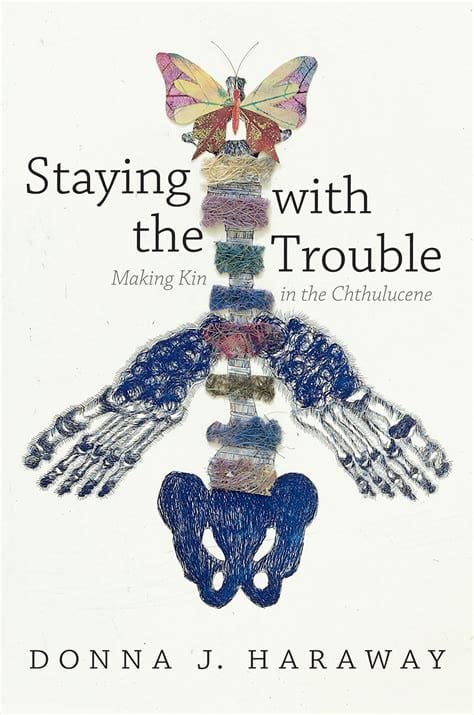week 34 / 2025: the machine stops
When life gives you lemons, make a lemonade-flavoured parable in place of the more considered content that you'd have written if you'd not lost the time to dealing with the lemons.

“I can’t live when it lives / it won’t live if I die / machine has no heart to give / heart it takes could be mine...”
What passes for routine around here has this week been rather rudely interrupted, but that interruption has at least provided the basis of a parable.
Long story short: my beloved but somewhat senescent ThinkPad had a fairly serious senior moment around Friday lunchtime, with the result that I lost most of that working day—and thus my usual timeslot for drafting my weeknotes—to dealing with the drama.
“Didn’t predict that, did you, Mister Futurist?” Well, no, I didn’t—but I’m not in the business of prediction, and frankly anyone who tells you that they are in such a business is a fraud and a charlatan, and you may tell them I said so.
But I did foresee this event, or at least an event of this type—which is why it was far less destructive and/or expensive than it might otherwise have been.
I’ve had enough lifetime experience with computers, and suffered enough of their catastrophic failures, that I have hedges against them. For instance, in addition to my “main” laptop, I always keep the previous machine in working order, ready to step in should an emergency arise, or to take with me when travelling. These days I also have a reserve desktop machine—a decade-old gaming rig rescued from the bin-sheds of my apartment block and refurbished for my own entertainment needs, which are presumably rather less intensive than those of the previous owner.
(It is genuinely amazing to me what people will throw away. I suspect many of you have a mental picture of Swedes as diligent recyclers and frugal consumers, the very model of the environmentally-aware citizen. You have no idea how wrong that picture is.)
Hardware is only half of the story, though. I’ve been a Linux user for almost two decades now, which is less due to any particular affinity for command-line operations than to an ideological commitment to software whose functionality is acceptable within the scope of its price. Put bluntly, Windows has always been shit, and it galls me to pay for software that I know to be shit; and when the shittyness of that software generates extra costs, whether in destroyed hard drives or days of work lost, well, I look for alternatives. Back in the mid-Noughties, Ubuntu was a bit touch-and-go as a daily-drive replacement for Windows, but I had sufficient experience and nous to be able to absorb the cognitive overhead. It was glitchy, and it didn’t always work—but the same was true of Windows, for which I was obliged to pay.
(I didn’t use cracked versions of Windows, either—again, less for ideological reasons than an uncomfortable awareness that you had no idea what else might have been slipped in there by the cracker, and the demonstrably higher tendency of cracked versions to provoke fatal crashes. In other words, this was one of those cases where “free” could actually be just as costly as the paid version, and in even uglier ways.)
In other words, I am prepared for computer disasters, because I have experienced them (and their repercussions) directly, and had to deal with them in such a way as to minimise costs, whether measured in money or time. If the operating system of my main machine decides to commit seppuku, I can be back in business after just a handful of hours of uncompensated effort. This is resilience, albeit a very unglamorous and small-scale example of such.
Now, if Friday’s failure had been on the hardware side, that could have been more drastic. One reason I stuck to desktop systems for so long was the possibility of just swapping out the borked bit; that’s not really an option with laptops, though thanks to e.g. SSDs they’re rather less prone to all-out hardware failure than they once were. But still, I have that older machine that can step in to the breach; I’d be operating on reduced capacity, but I could be back in business within half an hour.
So, no: I didn’t predict Friday’s catastrophe, but I foresaw it—and I long ago built redundancy and compromise into my operations in order that, when it inevitably happened, it would result in minimal disruption. I also foresee the need for my current main machine to be replaced and relegated to reserve; this ThinkPad has probably got another couple of years in it for the sort of work I do, but it would be unwise not to take this recent mishap as a warning.
It’s presumably obvious that I’m positioning this as a “teachable moment”, but I’m not going to belabour the point any further. It’s been a long week. :)
reading
This week I’m well into the back half of Wolfe’s Book of the Long Sun, but I’ve talked about that enough already, I think, for this venue at least.
I’m also re-reading Donna Haraway’s Staying With the Trouble, which is a somewhat mixed experience. As I remarked to a friend mid-week, I think—indeed, I hope—that I will always admire Haraway’s thought, but her quirky prose style was much easier to enjoy before it became the default voice of every single artist statement in the English-speaking world.

This, I think, is the problem of genre: people find something exciting in some new piece of cultural production, and they want to emulate it, but they end up imitating the form rather than the content. I think I now understand what Silvio Lorusso meant when he took aim at “mossy exhibitions”; it’s the landfill indie of the interdisciplinary arts. And I’ll do a mea culpa here, because I’ve certainly done some second-rate Haraway impersonation in my time! In the context of academic writing, and even just social-theoretical writing, encountering someone who wrote as if they actually had a personality was incredibly invigorating, at least for me. The mistake is to assume that, by imitating the style, you are therefore adopting the ideas.
That aside, it’s kind of shocking how old this book feels, despite having not quite clocked up a decade since publication. To list just one discursive disjunction: in one of the early chapters, Haraway is worrying about runaway overpopulation as a climate stressor, and quoting then-contemporary forecasts of an 11-billion peak around 2100; as has been discussed here a few times of late, that estimate has been dialled down considerably, and it’s more common nowadays to hear people worrying about underpopulation than overpopulation. Now, that doesn’t mean we can discard concerns over the carrying capacity of the planet on which we live, by any means! But it is a pretty direct illustration of how the priorities of concerns can change in fairly short order.
a clipping
I’m a sucker for a good “everything we thought we knew is probably wrong” science story, and this is a doozy:
When our planet was newly formed, the story goes, the surface was a barren wasteland of sharp rocks, strewn with lava flows from erupting volcanoes. The air was an unbreathable fume of gases. There was little or no liquid water. Just as things were starting to settle down, a barrage of meteorites tens of kilometres across came pummelling down from space, obliterating entire landscapes and sending vast plumes of debris high into the sky. This barren world persisted for hundreds of millions of years. Finally, the environment settled down enough that oceans could form, and the conditions were finally right for microscopic life to emerge.
That’s the story palaeontologists and geologists told for many decades. But a raft of evidence suggests it is completely wrong.
ticked off
- Ten and a half hours of admyn. (Again, a lot of little bits and pieces are in play at the moment: sweeping up behind otherwise finished projects, trying to line things up for prospective projects, as well as the usual day-to-day stuff that comes with running one’s own business.)
- Three hours of systems recovery. (This is basically admyn, but it is not normal admyn, so it gets its own category. My ledger, my rules!)
- Eight hours on PROJECT PORTON. (You know how you can make the process of making minor, quibbly changes on a large document more fun? By spreading the requests for those minor quibbly changes across a number of different feedback documents in a variety of different formats!)
- Six hours on PROJECT PONTIF. (I think I’m just going to have to accept that PONTIF is staying in the engine shed for a while; there’s too many other things happening.)
- Five hours on PROJECT HORNIMAN. (The return of HORNIMAN is one of the things that’s side-lining PONTIF, as they both demand very similar sorts of wide-screen thought resource.)
- Five hours at STPLN. (The new cohort’s introductory day.)
- Plus ten hours of undirected writing and reading, because that’s how we do things downtown.
kinmaking
No kinmaking this week.
Right, that’s the lot, I think. Normal service—or what passes for such around here, at any rate—should be resumed next week. In the meantime, I hope all is well with you, wherever you may be.
This has been the Worldbuilding Agency weeknotes for Week 34 of 2025. Thanks for reading! If you've enjoyed them, it's free to subscribe. If you are already subscribed, please send to a friend who you think might also like it!





Comments ()